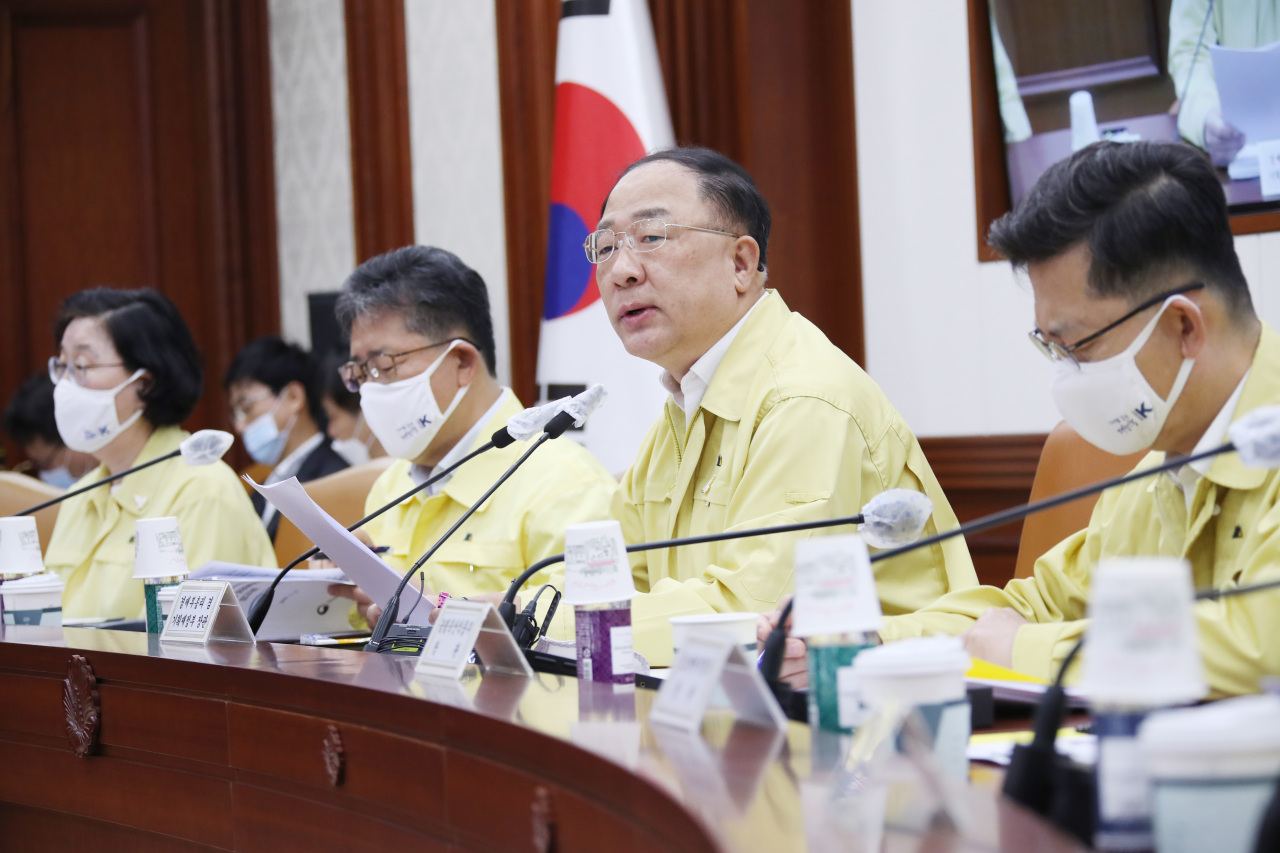Finance minister warns against housing prices amid COVID-19 countermeasures
Government vows to stabilize overheated housing costs, regardless of pump-priming policy moves
By Bae HyunjungPublished : June 11, 2020 - 17:07

While continuing efforts to activate investments and create jobs amid the COVID-19 crisis, South Korea’s top fiscal policymaker once again vowed to stabilize the real estate market, viewing the country’s overheated housing costs as a key economic challenge.
The warning tone hinted that the current Moon Jae-in administration prolonging its tight grip over the bubble-prone housing market, regardless of the separate struggle to stimulate the economy at all means.
“The regulated zones in Seoul and the surrounding metropolitan area have seen their housing cost downturn slow down, while the unregulated areas have seen steady price increases,” said Deputy Prime Minister and Finance Minister Hong Nam-ki in an economic policy meeting held at Seoul Government Complex.
“The government will keep a stern watch on the market and promptly take necessary measures, should signs of unrest be detected in the housing market.”
Following the government’s Dec. 16 measures announced late last year -- which focused on banning or restricting housing mortgage loans for expensive apartments -- housing costs in Seoul have been on a steady trend. Taking into account the recent economic contraction due to the novel coronavirus pandemic, speculations had been mounting that the bubble-prone housing costs here may at last subside.
“(But) due to the low interest rate trend and ample market liquidity, there is also the plausibility that the housing costs may reascend,” Hong said.
Last month, the Bank of Korea cut the country’s policy rate by 25 basis points to a fresh record low of 0.5 percent.
“The government is more determined than ever to stabilize the real estate market as (housing costs) are directly related to the people’s livelihood and welfare,” the minister said.
The fiscal chief’s remarks stood out as they came at the end of a policy meeting to discuss economic measures against the COVID-19 fallout.
The move also triggered market speculations that the incumbent Moon Jae-in administration may come up with stronger loan restrictions or other regulations, notwithstanding the overall market stagnation amid the epidemic fallout.
During the meeting, the finance minister rolled out some details of the government’s earlier vow to spur investments worth about 100 trillion won ($83.6 billion) within the year to revitalize the domestic economy.
“(The government) will execute 60.5 trillion won worth of public investments and figure out 5.8 trillion won worth of corporate investments within the year,” Hong said.
The government will also draft guidelines so that 150,000 new jobs are provided to young job seekers within July -- in a step with an earlier vow to create 550,000 new jobs within the year mostly in the public sector.
Asia’s fourth-largest economy saw its jobless rate spike to a 10-year high in May, while the number of employed people dipped by 392,000 to 26.93 million. The pace of job losses, on the other hand, eased in May in an apparent sign of possible recovery.
In a move to support companies amid the employment pressure and continuing economic fallout, the government also set about launching a 2 trillion-won program to purchase assets from cash-strapped companies.
It also discussed ways of allowing small-sized businesses to use state properties at discounted prices.
By Bae Hyun-jung (tellme@heraldcorp.com)

















![[Eye Interview] 'If you live to 100, you might as well be happy,' says 88-year-old bestselling essayist](http://res.heraldm.com/phpwas/restmb_idxmake.php?idx=652&simg=/content/image/2024/05/03/20240503050674_0.jpg&u=)
